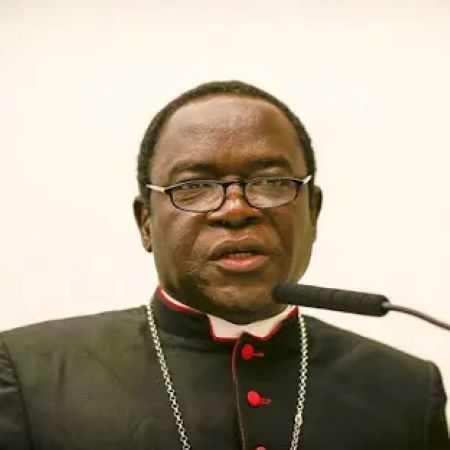The world today is grappling with the effects of the seven deadly sins: Pride, Greed, Lust, Envy, Gluttony, Wrath, and Sloth, Bishop Matthew Hassan Kukah has said. In his Christmas message, the Bishop of the Catholic Diocese of Sokoto called for deep reflection on the essence of the season, which he said is being eroded by secularism and materialism.
“The message of Jesus to the world is peace, joy, love, justice, and reconciliation. Yet, we have allowed secular forces to strip Christmas of its true meaning, turning it into just another holiday or an opportunity for business gains,” Kukah lamented.
He highlighted the moral decay in society, stating that the world has lost its moral compass and is engulfed by violence. “The baby Jesus no longer lies in the innocence of swaddling clothes in Bethlehem but in the pool of blood that has engulfed Gaza and its surrounding communities. The drums of war now threaten to drown the good news of joy that Christ brought,” he said.
Christmas, according to Kukah, is a time for self-examination and renewal of commitment to Christian values. He reminded Christians that Advent, the four-week period preceding Christmas, is meant for meditation on the coming of Christ. “Jesus entered human history as the fulfillment of centuries of prophecies, bringing light to a world in darkness. Yet, we often choose to let that light remain hidden,” he said.
Drawing parallels to Nigeria, Kukah said the country’s lack of progress is tied to its preference for “darkness over light.” He cited persistent issues such as ethnicity, nepotism, and greed as barriers to national unity and progress. “Imagine what Nigeria would look like if we chose light instead of darkness, if we allowed the light of Christ to shine in our public service, politics, and institutions,” he said.
Kukah acknowledged the progress made in areas like youth participation in politics and the introduction of the Student Loan Act, which aims to make education accessible to all. However, he cautioned against bureaucratic bottlenecks and favoritism that could derail such initiatives.
On the country’s security challenges, Kukah called for a comprehensive plan with clear timelines, emphasizing that corruption, unemployment, and religious extremism must be addressed to achieve lasting peace. “Religious extremism must be confronted with the force of law. Perpetrators must be treated as criminals and murderers,” he stressed.
Reflecting on recent tragedies, such as stampedes at food distribution points in Nigeria, Kukah described them as “metaphors for the desperation that citizens have been thrown into.” He urged the government to collaborate with institutions like the Catholic Church, which provides aid to the vulnerable, to ensure dignity for all citizens.
He concluded his message by quoting Pope Francis’ recent encyclical, Dilexit Nos (He Loved Us), which warns against a society dominated by selfishness. “Christmas calls us out of the cocoon of selfishness and frees us to love tenderly. Let us renew our commitment to the ideals for which Jesus came into the world,” Kukah said.
The Bishop’s message was a poignant reminder of the need for introspection and a return to the values of peace, love, and justice, especially during the festive season.


